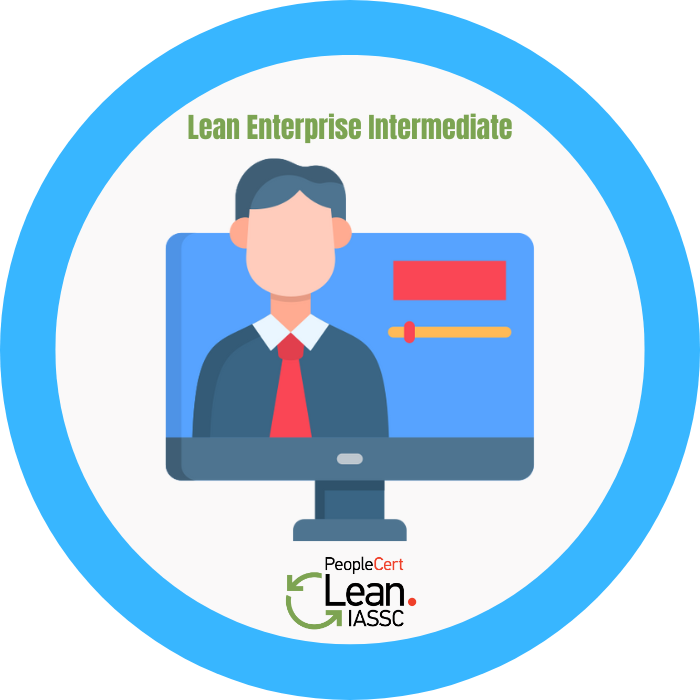Description
Lean is a proficiency, originally established from the Toyota Production System, that refers to the application of certain Lean practices, principles, and tools typically used to reduce waste and improve process efficiencies.
Purpose of Lean Enterprise (Intermediate Level) Qualification
To confirm candidate is well versed in Lean methodology & able to implement, perform, interpret & apply Lean methodology at an intermediate level of proficiency.
Why is it important to hold a Lean certification?
- Proves candidate’s proficiency with Lean methodology, beyond terminology.
- Undertake the role of Certified Practitioner / Leader / Expert role in their teams.
- Showcase the skills necessary to achieve the desired results (defect reduction, process improvement or any other strategically aligned organizational objectives).
Course Details
| Course Duration | : | 6 days |
| Mode of Training | : | Instructor-Led Online Training |
| Certification | : | Certificate of Attendance will be provided upon completion of training |
Who should attend?
| 1st Level | Lean Enterprise (Basic Level) – foundational understanding of Lean and its practical implementation. 3 days in total. |
| 2nd Level | Lean Enterprise (Intermediate Level) – proficient understanding of Lean concepts and tools. 6 days in total. |
| 3rd Level |
Lean Enterprise (Advanced Level) – mastery of all Lean Management tools and their practical applications. 8 days in total. |
Course Content
- Introduction to Lean
- Gemba (The Real Place)
- Kaizen (Continuous Improvement)
- KPIs (Key Performance Indicators)
- Teamwork & Team Skills
- MUDA (Wastes) / MURA (Fluctuation) / MURI (Overburden) – the three families of efficiency losses
- 5S
- Kano Model
- Just-In-Time (JIT)
- Bottleneck Analysis
- Continuous Flow
- Takt Time
- Value Stream Mapping
- Flow Diagram (Swimlane Diagram)
- Spaghetti Diagram
- Layout planning
- Single-Minute Exchange of Dies (SMED)
- Heijunka (Level Scheduling)
- Kanban (Pull System)
- Jidoka (Zero Defect Principle)
- Andon
- Poka-Yoke (Error Proofing)
- Root Cause Analysis (RCA)
- Risk Analysis
- Overall Equipment Effectiveness (OEE)
- Standardized Work
- Sustainment
- Visual Management
- Short Interval Control / Active Supervision
- Kaizen Task-Force workshops
- DMAIC (Define, Measure, Analyze, Improve, Control)
- SMART Goals
- Stakeholder Management
- PDCA (Plan, Do, Check, Act)

Reviews
There are no reviews yet.